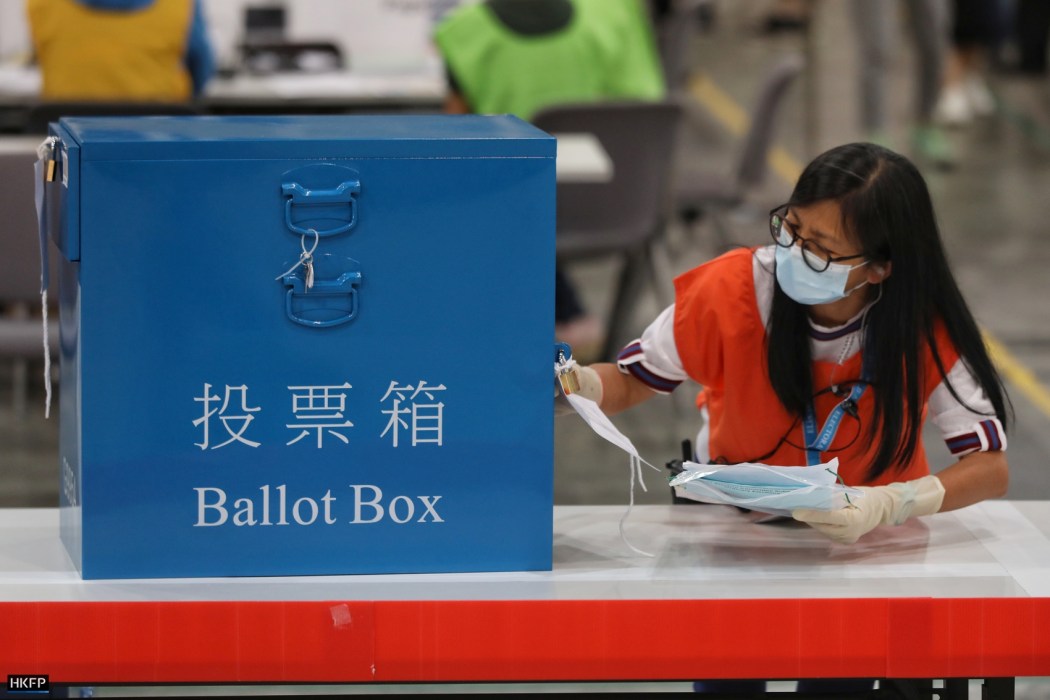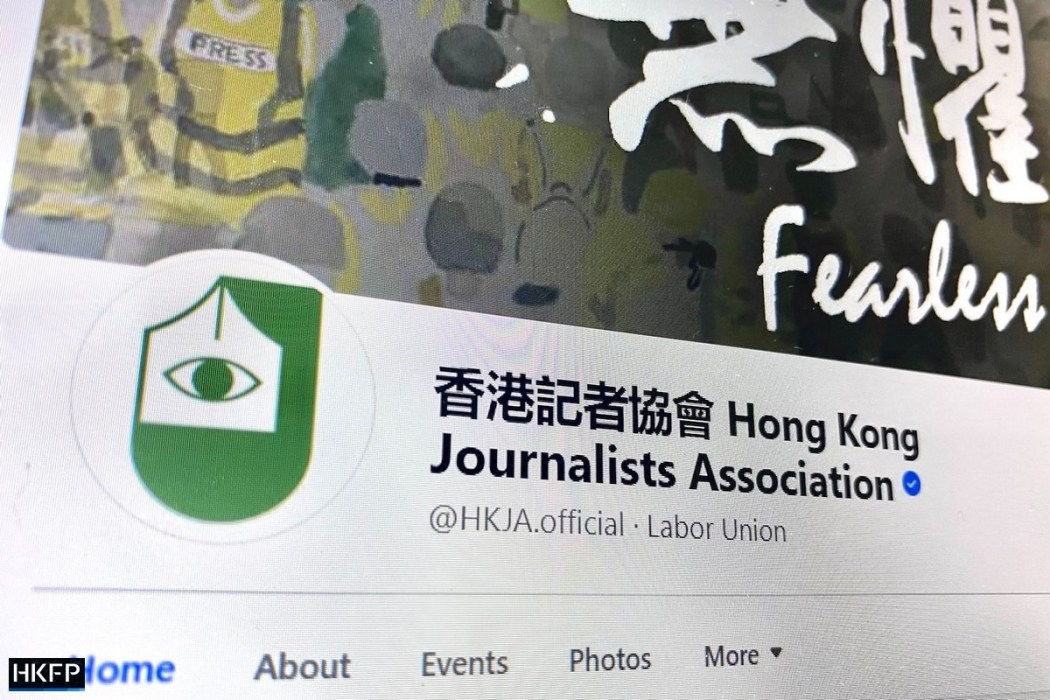The first of the three “patriots only” elections under Hong Kong’s new political system was held on the same day the Hong Kong Confederation of Trade Unions, the city’s largest independent labour grouping, announced plans to disband.
Sunday’s Election Committee election was the result of a sweeping China-mandated revamp of the system which had been laid down in the Basic Law promulgated in 1990.

The polls, in which police officers outnumbered voters, marked the beginning of the era of “patriots administering Hong Kong.” It follows a troubled, but not failed, 24-year-long experiment known as “Hong Kong people running Hong Kong.”
Under the new “patriots” game, only those deemed by Beijing as “true patriots” will have a role in administering the city. Those branded as “anti-China” and troublemakers will not just be barred from joining the Legislative Council, the District Councils and the 1,500-member Election Committee, but may face harsh political reprisals.

Civil society groups, in particular trade unions, have emerged as the next targets after pro-democracy political parties and groups were eliminated one after another.
The Professional Teachers Union, the city’s largest teachers’ body, is in the process of winding up. The Hong Kong Alliance in Support of Patriotic Democratic Movements in China, currently under investigation for alleged violations of the national security law, may be struck off the Companies Register by order of the Secretary for Security.
The list of smaller groups, which have moved to disband since a sweeping national security law came into force on June 30, 2020, is much longer.

Founded in 1990 by a group of veteran independent labour unionists, the HKCTU became the latest big pro-democracy body to fall as Beijing intensified moves to silence organised voices of dissent in society.
Even groups with far fewer members and limited influence in governance are beginning to feel the heat.
The Hong Kong Journalists Association is an example. Taking his cue from and mimicking the script of security minister Chris Tang, Police Commissioner Raymond Siu on Saturday accused it of being “unprofessional” and politically biased.
Among other accusations, the pair claimed the HKJA had been swift to condemn acts of violence against the now-defunct Apple Daily, but had failed to speak up when pro-establishment media were the subject of violence.

A HKJA statement on Saturday documented some of its previous statements condemning acts of violence and obstruction of journalists from media outlets including Ta Kung Pao and TVB.
Although the attacks by Tang and Siu do not hold water, they give pro-Beijing media outlets and political figures ammunition to lambast the journalist group.
Not surprisingly, the intensity of attacks is increasing – and being elevated to the level of national security. Evidence, though, is lacking.
The fate of the HKJA is unclear. But the new socio-political landscape in Hong Kong after Beijing enacted the national security law and overhauled the election system is increasingly clear.

In an interview with an online media outlet, Lau Siu-kai, vice-president of the semi-official Chinese Association of Hong Kong and Macau Studies, said the room for mass politics would be drastically reduced. The stage of “elite politics” would be further expanded for patriots to run the city, he said.
Professor Lau envisaged the building of a ruling coalition composed of patriots from different sectors.
His association, which is directly under the State Council’s Hong Kong and Macau Affairs Office, plays the role of adviser and think-tank to the central government. After policies are rolled out, he and association members will support and explain them to the public, he said.
Some 24 years after the end of colonial rule, when like-minded elites handpicked by the British Hong Kong administration backed the regime, the city is moving backwards to elitist rule of a different kind – with patriots in and democrats and civil society groups out.
Support HKFP | Policies & Ethics | Error/typo? | Contact Us | Newsletter | Transparency & Annual Report | Apps
Help safeguard press freedom & keep HKFP free for all readers by supporting our team
| HKFP is an impartial platform & does not necessarily share the views of opinion writers or advertisers. HKFP presents a diversity of views & regularly invites figures across the political spectrum to write for us. Press freedom is guaranteed under the Basic Law, security law, Bill of Rights and Chinese constitution. Opinion pieces aim to point out errors or defects in the government, law or policies, or aim to suggest ideas or alterations via legal means without an intention of hatred, discontent or hostility against the authorities or other communities. |

More HKFP OPINION:
HKFP has an impartial stance, transparent funding, and balanced coverage guided by an Ethics Code and Corrections Policy.
Support press freedom & help us surpass 1,000 monthly Patrons: 100% independent, governed by an ethics code & not-for-profit.










